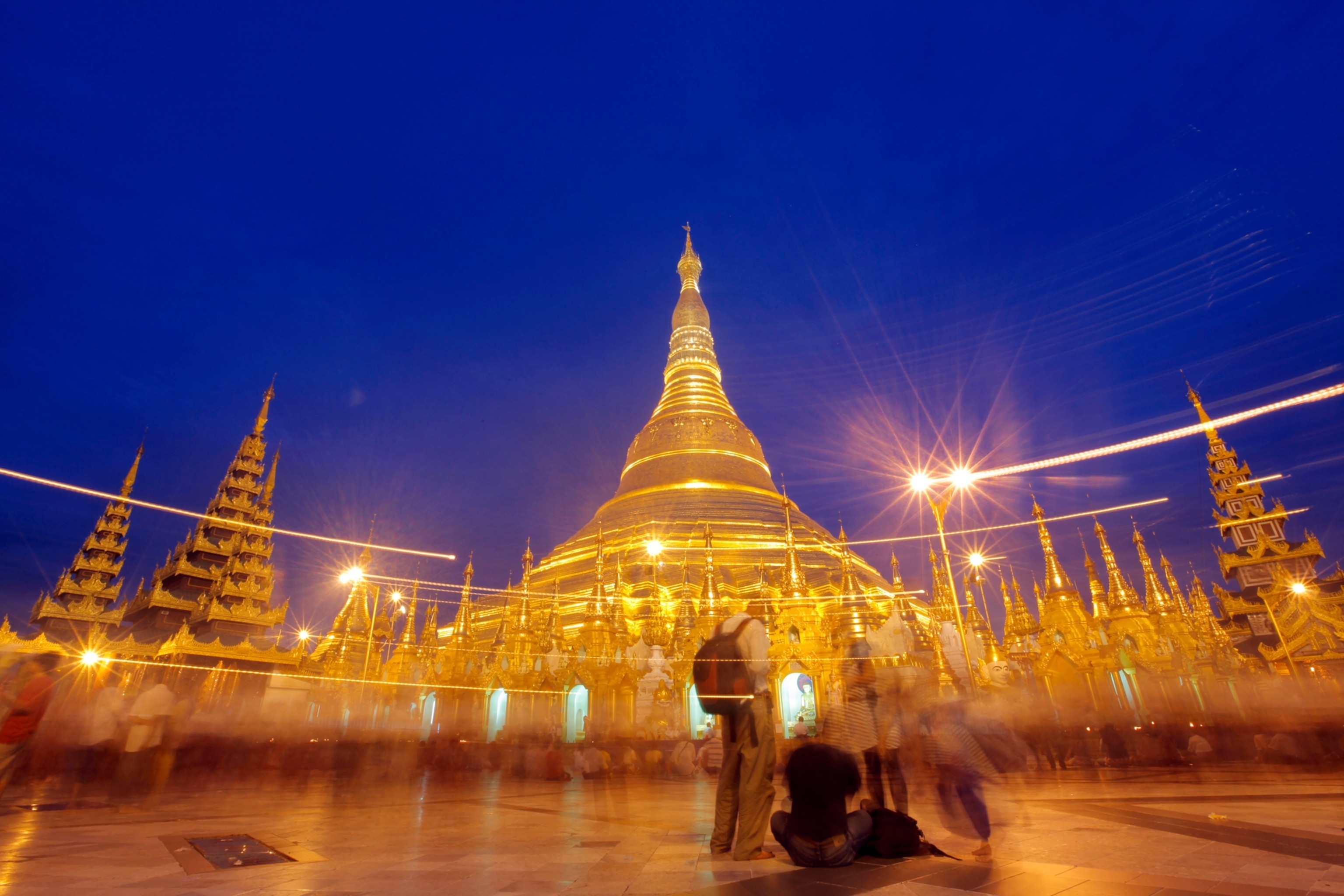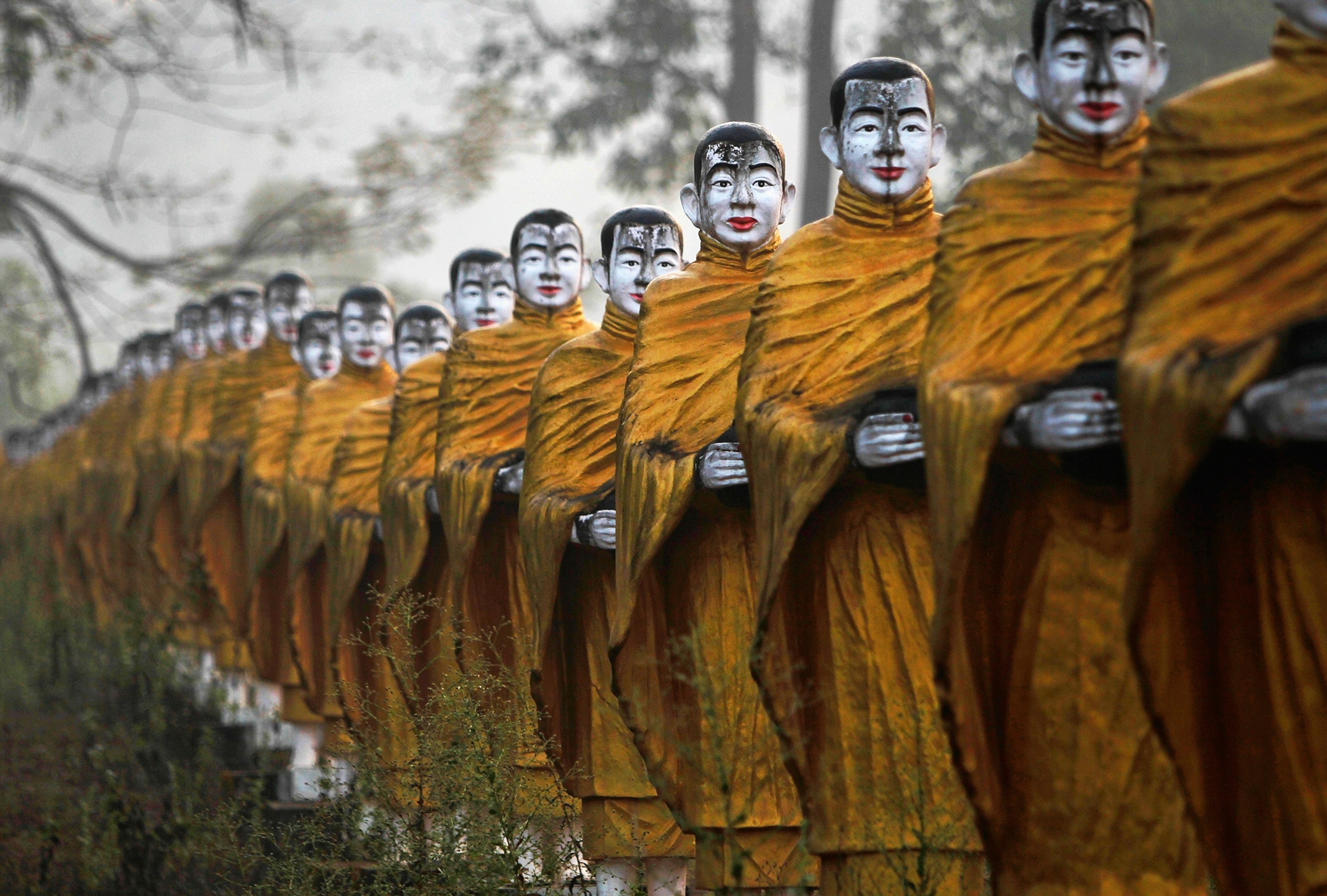
Myanmar Opening to Tourism, Investment—and Reform?
A closed society is opening up, but how much remains to be seen.
Picture it: pagodas, palaces, parks—a paradise for photographers. Keep clicking. Through your lens you see the "new" and "mysterious," the "mystical" and "magical" Myanmar, also known as Burma.
There is so much for tourists to see: Buddhist temples, royal gardens, tranquil rivers, and paddies. (See related photo gallery: "Land of Shadows.")
But wait, wasn't this Myanmar once a xenophobic, tightly controlled, reclusive, repressive country? How can the same place that limited visas and travel for decades now be attracting planeloads of tourists—and branding itself for its "hospitality" and welcoming atmosphere?
Yes, the same country that until 2010 kept its leading dissident, Aung San Suu Kyi, under house arrest, markets itself today as the "Golden Land" of mystical charms and exotic attractions. Sounds almost schizophrenic. But Myanmar may be the best example of a once-closed land that has now discovered the upsides (and possible downsides) of openness, public diplomacy, and tourism.
The Lure of Lucre
Last year alone, according to the research firm Quartz, one million people visited Myanmar. A country that once locked up dissidents who dared to criticize its political leaders is now busy upgrading airports and hotels to meet the rising tide of visitors—expected to reach three million by 2015, and seven million by 2020, according to its own projections.
That's a lot of people ... and a lot of revenue. According to the Institute of Peace and Conflict Studies, Myanmar garnered $500 million dollars last year from tourism, up from $315 million in 2011.
Companies are flocking in. In June, Myanmar played host, for the first time, to the World Economic Forum's Asia Summit. Over 900 participants from 55 countries attended the gathering, including chief executives from Chevron, General Electric, Mitsubishi, and Visa. Coca-Cola already has a bottling plant outside of Yangon, and recently announced that it is investing $200 million over the next five years in production and distribution in Myanmar.

Fragile Democracy
The welcome mat was rolled out as part of a larger process of political and democratic reform in Myanmar over the past few years. In 2010, voters elected a nominally civilian government—led by a retired army general—ending decades of harsh military rule. Foreign governments and companies, sensing opportunities, have rushed to encourage Myanmar's progress and to create incentives for continued reform. All sounds good.
And yet ... there's a "but" to this story.
Democracy is a process, not a product. The president of Myanmar, Thein Sein, has shown himself over the past two years to be an advocate of economic and political opening, but he is also a former career army officer. The old military guard is still very influential in Myanmar, and their ranks include opponents of democratic change. Backsliding remains a concern.
We have seen other cases around the world—Egypt is a prime example—where the military steps slightly to the side, only to step back in with both boots if it sees an opportunity or necessity to do so.
How Thein Sein balances the civilian-military equation is yet to be seen. He recently made his first trip to the White House, and has shown himself capable of bold moves--like releasing hundreds of prisoners, including political detainees; allowing parliamentary elections in 2012 (an election that brought Aung San Suu Kyi back into government); and liberalizing the press. But progress can easily be rolled back, as we saw after the revolution in Libya, where many democratic gains were quickly lost.
Thein Sein has promised to release all political prisoners by the end of the year—a stark reminder of how dissidents have been handled in the past. But the real test will come later. Dissent is not easy for any government to tolerate—especially governments that are used to secrecy and tight control—and there is still much to criticize.
Unfinished Business
It takes time to root out corruption and cronyism, and Myanmar has a long way to go. Although the West has eased sanctions and the United States has an ambassador now in Myanmar, the embassy issues regular reminders to American companies that reforms remain "unfinished," in the words of the U.S. government's own press release. That is code for "transparency not yet achieved."
Independent newspapers are springing up, new broadcast laws have been adopted that reduce official censorship, and there's been massive growth in the numbers of Facebook users. But a more open media is not, by itself, a guarantee of freedom. It is possible to shut down dissent even with an open press. Russia is a good example of a country that saw a rise of independent radio and television stations. But when Putin wants to crack down on dissent, he finds ways to do so, sometimes by locking people up or changing laws.
Motivation is also important. We don't yet really know what the government of Myanmar truly wants beyond tourists, revenue, and investment. The country is moving from pariah to player—in part because its appalling economic conditions required it. But with benefits come responsibilities—like fair play, open business rules, and accountability.
It remains to be seen if Myanmar will really embrace the relative chaos of a free market and full-fledged democracy. The temptation to revert to old ways, to control events and determine outcomes, will be powerful.

Violence and Optimism
A good test of its intentions will be how the government handles the violence in Rakhine State, where conflict is simmering between Buddhists and Muslims. Human rights monitors estimate that over 200 people have been killed during the past year. Buddhist mobs have burned down mosques, and 125,000 Rohingya Muslims are currently displaced across the country, living in camps and shelters according to a report by Human Rights Watch. A United Nations envoy is currently in the region to assess the situation, but his visit to Rakhine has provoked protests and violence by both sides trying to influence his findings.
Journalists complain of difficulty reporting the story because access is not always granted to violent areas, and a travel ban is in effect at times when a state of emergency is imposed. Rakhine has beautiful coastal areas and historic sites, but tourists are unlikely to visit a part of Myanmar that is often under siege.
Experiments are often just that—experimental. Myanmar's decision to open itself to the world is, for now, generating great excitement. The burgeoning tourism sector, in particular, has the world's attention, and optimism is high that the country can meet its internal challenges. But like any beautiful photograph, Myanmar has to be looked at from multiple angles. Deeper truths can be hidden or hard to see.
Tara Sonenshine is former Under Secretary of State for Public Diplomacy and Public Affairs. She is currently a Distinguished Fellow at George Washington University's School of Media and Public Affairs.